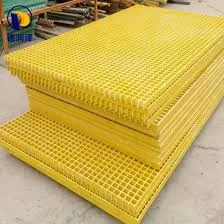
-
 Afrikaans
Afrikaans -
 Albanian
Albanian -
 Amharic
Amharic -
 Arabic
Arabic -
 Armenian
Armenian -
 Azerbaijani
Azerbaijani -
 Basque
Basque -
 Belarusian
Belarusian -
 Bengali
Bengali -
 Bosnian
Bosnian -
 Bulgarian
Bulgarian -
 Catalan
Catalan -
 Cebuano
Cebuano -
 China
China -
 China (Taiwan)
China (Taiwan) -
 Corsican
Corsican -
 Croatian
Croatian -
 Czech
Czech -
 Danish
Danish -
 Dutch
Dutch -
 English
English -
 Esperanto
Esperanto -
 Estonian
Estonian -
 Finnish
Finnish -
 French
French -
 Frisian
Frisian -
 Galician
Galician -
 Georgian
Georgian -
 German
German -
 Greek
Greek -
 Gujarati
Gujarati -
 Haitian Creole
Haitian Creole -
 hausa
hausa -
 hawaiian
hawaiian -
 Hebrew
Hebrew -
 Hindi
Hindi -
 Miao
Miao -
 Hungarian
Hungarian -
 Icelandic
Icelandic -
 igbo
igbo -
 Indonesian
Indonesian -
 irish
irish -
 Italian
Italian -
 Japanese
Japanese -
 Javanese
Javanese -
 Kannada
Kannada -
 kazakh
kazakh -
 Khmer
Khmer -
 Rwandese
Rwandese -
 Korean
Korean -
 Kurdish
Kurdish -
 Kyrgyz
Kyrgyz -
 Lao
Lao -
 Latin
Latin -
 Latvian
Latvian -
 Lithuanian
Lithuanian -
 Luxembourgish
Luxembourgish -
 Macedonian
Macedonian -
 Malgashi
Malgashi -
 Malay
Malay -
 Malayalam
Malayalam -
 Maltese
Maltese -
 Maori
Maori -
 Marathi
Marathi -
 Mongolian
Mongolian -
 Myanmar
Myanmar -
 Nepali
Nepali -
 Norwegian
Norwegian -
 Norwegian
Norwegian -
 Occitan
Occitan -
 Pashto
Pashto -
 Persian
Persian -
 Polish
Polish -
 Portuguese
Portuguese -
 Punjabi
Punjabi -
 Romanian
Romanian -
 Russian
Russian -
 Samoan
Samoan -
 Scottish Gaelic
Scottish Gaelic -
 Serbian
Serbian -
 Sesotho
Sesotho -
 Shona
Shona -
 Sindhi
Sindhi -
 Sinhala
Sinhala -
 Slovak
Slovak -
 Slovenian
Slovenian -
 Somali
Somali -
 Spanish
Spanish -
 Sundanese
Sundanese -
 Swahili
Swahili -
 Swedish
Swedish -
 Tagalog
Tagalog -
 Tajik
Tajik -
 Tamil
Tamil -
 Tatar
Tatar -
 Telugu
Telugu -
 Thai
Thai -
 Turkish
Turkish -
 Turkmen
Turkmen -
 Ukrainian
Ukrainian -
 Urdu
Urdu -
 Uighur
Uighur -
 Uzbek
Uzbek -
 Vietnamese
Vietnamese -
 Welsh
Welsh -
 Bantu
Bantu -
 Yiddish
Yiddish -
 Yoruba
Yoruba -
 Zulu
Zulu
frp insulated storage vessel
FRP Insulated Storage Vessels An Overview
Fiber-Reinforced Polymer (FRP) insulated storage vessels have emerged as a significant innovation in the field of industrial storage solutions. These vessels combine the lightweight, durable characteristics of FRP with advanced insulation technologies, making them ideal for storing a variety of materials, including chemicals, liquids, and gases.
FRP Insulated Storage Vessels An Overview
The insulation properties of FRP vessels are also noteworthy. These storage tanks are designed with internal insulating layers that help regulate temperature, making them suitable for storing materials that require stable thermal conditions. Whether it's for cryogenic liquids or heat-sensitive chemicals, FRP insulated storage vessels minimize heat transfer, ensuring that the stored contents remain in optimal conditions.
frp insulated storage vessel

Moreover, the lightweight nature of FRP makes these vessels easier to transport and install compared to traditional steel or concrete tanks. This can lead to reduced transportation costs and simplified installation processes, ultimately resulting in significant savings for companies investing in storage solutions.
In addition to these practical benefits, FRP insulated storage vessels are also customizable. Manufacturers can tailor the size, shape, and insulation properties to meet specific customer requirements. This flexibility is particularly advantageous for industries with unique storage needs, allowing for optimized designs that enhance operational efficiency.
Environmental considerations also play a key role in the appeal of FRP vessels. As concerns about climate change and environmental sustainability continue to grow, industries are increasingly seeking solutions that minimize their environmental footprint. The long lifespan and efficiency of FRP vessels contribute to this goal, as they reduce the need for frequent replacements and the associated waste.
In conclusion, FRP insulated storage vessels represent a significant advancement in storage technology. Their resistance to corrosion, excellent insulation properties, lightweight design, and customization options make them a desirable choice for various industries. As the demand for efficient and durable storage solutions continues to rise, FRP vessels are likely to play an increasingly prominent role in the future of industrial storage.
Latest news
-
Exploring the Benefits of Top Hammer Drifter Rods for Enhanced Drilling PerformanceNewsJun.10,2025
-
High-Precision Fiberglass Winding Machine for GRP/FRP Pipe Production – Reliable & Efficient SolutionsNewsJun.10,2025
-
FRP Pipes & Fittings for Shipbuilding - Corrosion-Resistant & LightweightNewsJun.09,2025
-
Premium FRP Flooring Solutions Durable & Slip-ResistantNewsJun.09,2025
-
Premium Fiberglass Rectangular Tanks Durable & Lightweight SolutionNewsJun.09,2025
-
Tapered Drill String Design Guide Durable Performance & UsesNewsJun.09,2025









